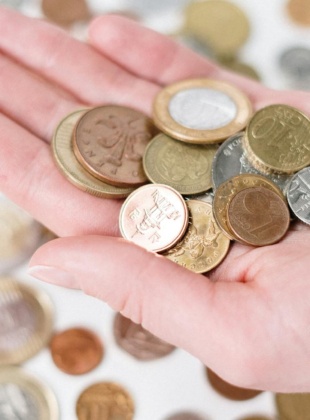Safety and Trust in Police in the Netherlands
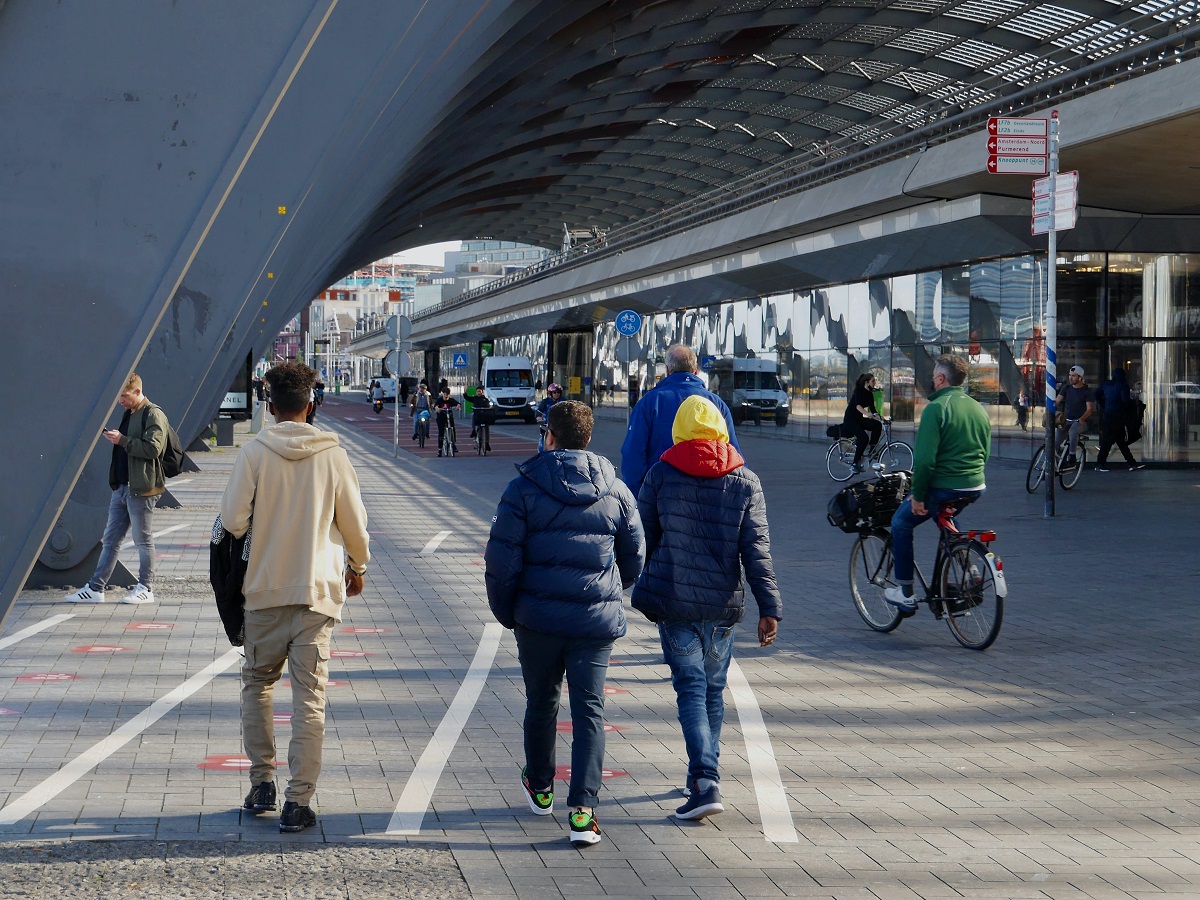
Two fifths of Dutch adults have experienced sexual harassment in the last year
Despite being known and praised for its strides in gender equality1, the Netherlands still has a lot of tasks to do. Sexual harassment is still dishearteningly prevalent, with four in ten Dutch women having experienced or know someone who has experienced sexual harassment in the last year (38%). Unwanted attention such as being shouted at (17%) or unwanted sexual attention such as catcalling (14%) are the most common forms experienced. Men are not immune to this, with almost equal measures reporting they’ve been harassed or know someone who has in the last year (35%). Unsurprisingly, women are twice more likely to receive unwanted sexual attention than men (14% vs 6%, respectively). Younger adults aged 18-34 are the most vulnerable group, with two thirds experiencing sexual harassment in the last year (65%).
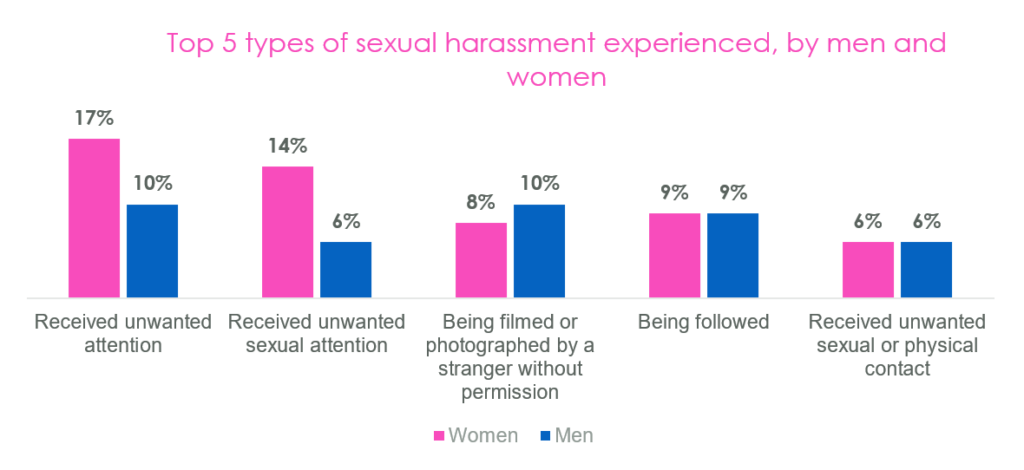
Not so peaceful after all: half of Dutch adults have felt unsafe in the last year
Similarly, the Netherlands’ high ranking in the Global Peace Index2 does not guarantee its residents’ safety. A quarter feel unsafe on the streets (23%), with 21% feeling uneasy at night. Women (55%) fear for their safety more than men, although a non-negligible number shared this sentiment (48%). Women feel more unsafe than men in most places, even twice as much in parks and outdoor space.
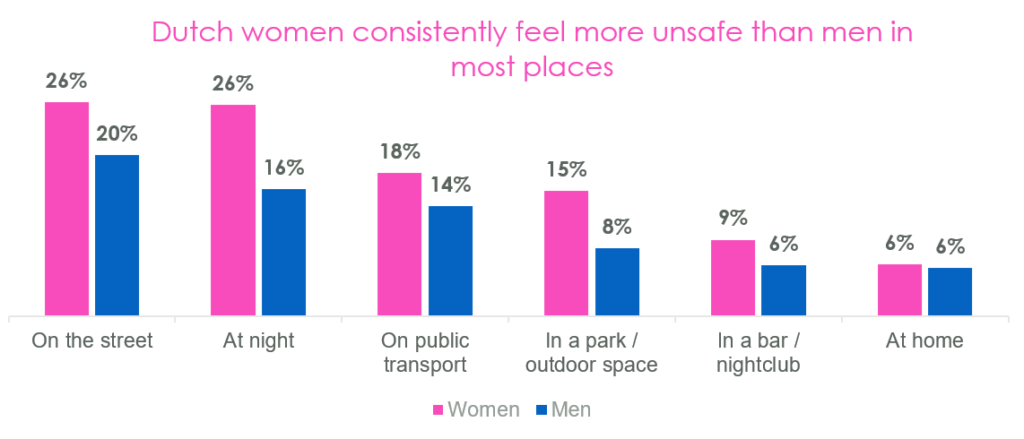
The age trend in sexual harassment is also observed here, with three in four younger adults feeling unsafe in the last twelve months (74%). This rate is considerably higher than those aged 35-54 (54%) and more than twice of those aged 55+ (32%), making young adults the most vulnerable group in the country.
Be home by midnight: A quarter of Dutch adults don’t go out at certain times to feel safer
To feel safer, seven in ten Dutch adults (72%) have taken at least one protective measure, such as by avoiding certain areas (36%) or walking in well-lit areas (34%). Consistent with the gender and age trend for safety and sexual harassment, women (82%) and younger adults (86%) are the most likely to do so.
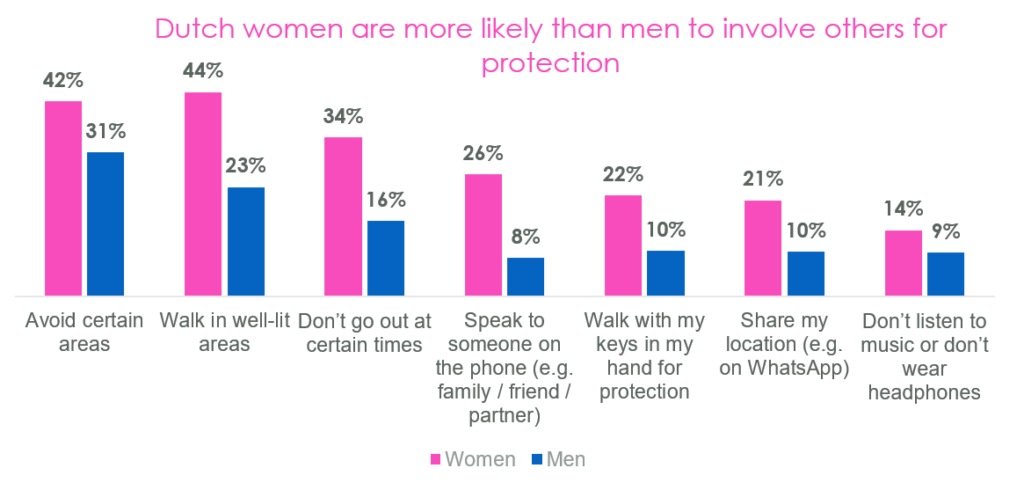
One in five Dutch adults do not trust the police service to keep them safe
With a considerable number feeling unsafe and experiencing sexual harassment, it is concerning that a fifth of Dutch adults (20%) distrust the police. Trust in police also falls behind other major responders with Dutch adults being more likely to trust a paramedic (66%), Doctor (64%) or fire fighter (62%). This is compared to 57% who trust police officers.
While trust in the police force could be higher in the Netherlands, comparatively, it’s higher than in the UK. When asked which professions they describe as trustworthy only 28% of UK adults said the police. This came way below doctors (60%), paramedics (57%) nurses (55%) and other first responders.
Opinium surveyed 2,000 UK adults and 2,000 Dutch adults nationally representative of each population respectively. The research was carried out between May 19th and May 23rd 2023 in the UK and 29th of September and 3rd October 2023 in the Netherlands via an online survey.
1. Gender Equality Index 2022: https://eige.europa.eu/sites/default/files/documents/gender_equality_index_2022_corr.pdf
2. Global Peace Index 2022: https://www.visionofhumanity.org/wp-content/uploads/2022/06/GPI-2022-web.pdf




